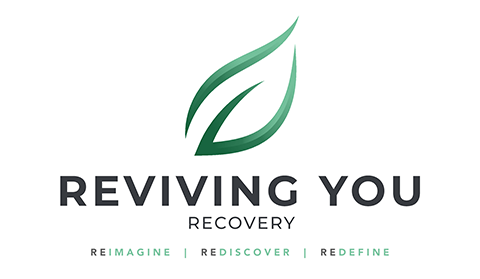What is the Super Meth Crisis and How Bad Is It?

In the evolving landscape of drug addiction and public health emergencies, one threat is making headlines with increasing urgency: the Super Meth crisis. While fentanyl has become synonymous with the opioid epidemic, methamphetamine—particularly a more potent, synthetic form known as “Super Meth”—is wreaking quiet havoc across the United States.
The term “Super Meth” is not just media sensationalism. It’s a genuine public health concern—this new form of methamphetamine is stronger, cheaper, longer-lasting, and far more damaging to both the brain and body than previous iterations. As it spreads, so does its wake of addiction, homelessness, psychosis, and overdose deaths.
At Reviving You Recovery, we’ve seen firsthand how Super Meth devastates lives. This article will walk you through what Super Meth is, how it differs from traditional meth, why it’s so dangerous, and what recovery from it looks like.
What Is Super Meth?
“Super Meth” is a street name referring to methamphetamine produced using the P2P (phenyl-2-propanone) method—a chemical process that has replaced the older ephedrine-based method once used in clandestine meth labs.
The P2P method is favored by large-scale drug cartels because it:
- Uses easily accessible industrial chemicals
- Doesn’t require pharmaceutical ingredients
- Can be manufactured in huge quantities
- Produces meth that is ultra-pure and long-lasting
This new version of meth is extremely potent, often reaching purity levels of 90% or higher, and it causes more intense psychological effects, especially paranoia, hallucinations, and aggression.
How Is Super Meth Different from “Old” Meth?
Traditional meth, produced from over-the-counter cold medications, caused high energy, euphoria, and intense focus. While still addictive and damaging, many people using old meth could go years before experiencing severe psychological breakdowns.
Super Meth, on the other hand, is like pouring jet fuel on the fire. It’s faster, more intense, and leads to serious mental health deterioration in a much shorter timeframe.
Key differences include:
| Feature | Traditional Meth | Super Meth (P2P Meth) |
| Method of Production | Emotional stability | P2P chemical synthesis |
| Purity | 30-60% | Often 90%+ |
| Onset of Psychosis | Months or years of use | Weeks or even days |
| Physical Damage | Gradual | Rapid, including rotting teeth, sores |
| Duration of Effects | 4–8 hours | Rapid, including rotting teeth, sores |
| Emotional Stability | Can feel “functional” | Often includes aggression, paranoia, hallucinations |
The P2P method also creates more toxic byproducts, contributing to increased neurotoxicity, brain damage, and long-term cognitive issues.
Why Is Super Meth Spreading So Rapidly?
The answer comes down to economics, accessibility, and scale.
1. Easy to Manufacture
Super Meth doesn’t rely on pseudoephedrine, which is now regulated. Instead, it uses industrial-grade precursors that are easily obtained in Mexico and other manufacturing regions.
2. Highly Profitable
Because of its strength and long-lasting high, users need less of it at a time. But because it creates intense dependency, people often binge for days at a time—making it extremely profitable for drug traffickers.
3. Widespread Availability Super Meth is flooding U.S. markets, especially in the West, Midwest, and South. In some cities, it’s being sold for as little as $5 to $10 a hit, making it cheaper than almost any other street drug.
How Bad Is the Super Meth Crisis?
This crisis is not just theoretical. It’s happening right now, with devastating consequences.
1. Rising Overdose Deaths
While fentanyl is still the leading cause of drug overdose deaths, methamphetamine overdoses have more than quadrupled in the past decade, especially when combined with opioids. In 2021 alone, over 32,000 meth-related deaths were reported in the U.S.—many linked to Super Meth.
2. Increase in Meth-Induced Psychosis
One of the most alarming aspects of Super Meth is the rapid onset of psychotic symptoms, even in new users. Emergency rooms are seeing more cases of individuals suffering from:

- Paranoia
- Delusions
- Violent hallucinations
- Suicidal behavior
- Catatonia
Unlike classic meth-induced euphoria, Super Meth often leads to full-blown psychosis after just a few uses.
Get Your Questions Answered Now

3. Growing Homelessness and Incarceration
Cities across the U.S. are reporting an increase in meth-fueled homelessness, arrests for bizarre or violent behavior, and hospitalizations for mental breakdowns. This epidemic is straining public health, mental health services, and law enforcement.
How Does Super Meth Affect the Brain?
Super Meth causes severe and lasting changes to the brain, including:
- Excessive dopamine flooding – leading to euphoria, then eventual dopamine depletion
- Neurotoxicity – destroying brain cells responsible for mood, memory, and impulse control
- Structural damage – long-term users often show shrinkage in key brain areas
- Worsened executive functioning – including decision-making, emotional regulation, and focus
The result is a drug that not only creates intense dependency but also makes it harder for individuals to recognize the need for help—trapping them in a cycle of use and psychological deterioration.
Why Is It So Hard to Treat Super Meth Addiction?
Methamphetamine addiction is already notoriously difficult to treat, but Super Meth presents new challenges:
1. Severe Cravings
Because Super Meth creates such a strong dopamine response, cravings can last months or even years after stopping use.
2. Psychosis and Mental Illness
Many users arrive at detox in a full psychotic state, requiring mental health stabilization before addiction treatment can even begin.
3. No FDA-Approved Medications Unlike opioids (which can be treated with Suboxone or Methadone), there are no current FDA-approved medications for treating meth addiction. Treatment relies heavily on behavioral therapy, structure, and long-term care.
Signs Someone Is Using Super Meth
The signs of Super Meth use may include:
- Extreme weight loss
- Hyperactivity followed by long crashes
- Twitching, jerky movements
- Severe paranoia or hallucinations
- Talking to oneself or responding to unseen stimuli
- Insomnia lasting several days
- Picking at skin or open sores
- Decaying teeth and gums (“meth mouth”)
- Social withdrawal or erratic behavior
If you notice these signs in a loved one, time is of the essence.
Detoxing From Super Meth
At Reviving You Recovery, we understand how frightening and disorienting meth withdrawal can be. Symptoms often include:
- Intense fatigue
- Depression and anxiety
- Suicidal thoughts
- Aggression or psychosis
- Sleep disturbances
- Severe cravings
- Brain fog and memory issues
Our medical detox program provides:
- Safe withdrawal management
- Antipsychotic and antidepressant support if necessary
- Immediate crisis intervention
- Nutrition and hydration replenishment
- Therapeutic support from day one
We provide a compassionate, non-judgmental space to begin healing—no matter how long you’ve been struggling or how far you’ve fallen.
How Treatment Works at Reviving You Recovery
Following detox, our residential and outpatient programs focus on long-term healing and relapse prevention. Our comprehensive approach includes:
- Individual therapy (CBT, DBT, trauma therapy)
- Group counseling and peer support
- Life skills coaching
- Dual diagnosis care for co-occurring disorders like schizophrenia, PTSD, or bipolar disorder
- Family therapy to repair broken trust and rebuild communication
- Relapse prevention planning and aftercare coordination
Because of how powerful and psychologically destabilizing Super Meth is, we strongly encourage clients to participate in longer-term programs and build a solid foundation for recovery.
Why Compassion Matters
The Super Meth crisis doesn’t just affect individuals—it tears apart families, disrupts communities, and puts entire systems under pressure. But amid this crisis, there is hope.
We believe every person who walks through our doors deserves:
- Dignity – No one chooses addiction. It’s a disease, not a moral failing.
- Support – Healing requires structure, love, and professional guidance.
- Second chances – No matter how deep the addiction, recovery is possible.
At Reviving You Recovery, we’re committed to helping our clients take their first steps toward a better, safer, more meaningful life.
Final Thoughts: The Crisis is Real, But So Is Hope
The Super Meth crisis is one of the most alarming public health threats in recent memory. Its explosive spread, combined with its devastating physical and mental effects, makes it a uniquely dangerous drug. But it’s important to remember that addiction is treatable—even in its most severe forms.
If you or someone you love is caught in the grip of methamphetamine addiction—whether it’s Super Meth or any other form—now is the time to act.
Don’t wait for things to get worse. Every day in active addiction raises the risk of overdose, mental illness, or irreversible harm. But with the right help, you can find clarity, connection, and freedom again.
Contact Reviving You Recovery Today
Located in a peaceful setting where privacy, healing, and dignity come first, Reviving You Recovery provides comprehensive detox and addiction treatment for people ready to reclaim their lives. Call us today for a confidential consultation.
Your recovery journey starts with one brave step. We’ll walk the rest with you.
We Accept Most Insurances
We are in network with:









We know insurance coverage can be a source of uncertainty for people. We make sure you have all the information necessary. The great news is health insurance can potentially cover the total treatment costs. If you don't have insurance, we offer cash payment options for our treatment programs and are committed to working with clients regardless of financial situations.
